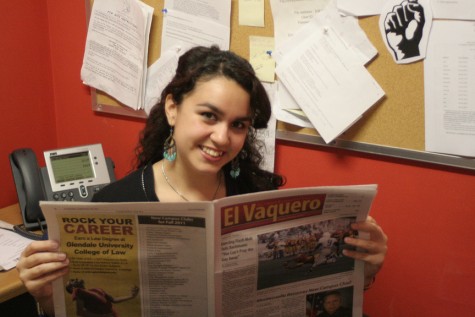In the state of California, Election Day is more than just electing a president; it is also a day where the people get to decide which propositions become laws. With Nov. 4 only six days away, the most important thing for people to do now is inform themselves on the issues.
There are 12 propositions on this year’s ballot, many of which have to do with raising taxes or increases in government spending. However, the most controversial propositions on the ballots, 2, 4, and 8, are about morals, not money.
Proposition 2
Proposition 2 deals with the standards for confining farm animals. If passed, Prop. 2 would require farms to keep egg-laying hens, pregnant pigs, and veal in conditions that “allow these animals to lie down, stand up, fully extend their limbs and turn around freely.”
While supporters of Prop. 2 argue that a “yes” vote will prevent animal cruelty, support family farms, protect the environment, and improve consumer’s health and food safety, those challenging the proposition argue that a ban on tight cages will drive the egg business out of California.
Sound a bit farfetched?
A study by UC Davis concluded that Prop. 2 would increase the price of eggs (by 1 cent per egg) due a 20 percent increase in production costs and as well as the industry relocating to other states, and possibly Mexico.
From the point on, those opposing the proposition have created a slippery slope, striking fear in consumers’ stomachs – eggs from Mexico! Salmonella!
Prop. 2 doesn’t ask that farmers get rid of cages completely, it only asks that the cages be made a little bit bigger – big enough for a chicken to extend its wings without touching another chicken or the sides of its cage.
The Humane Society of the United States has filed a lawsuit against UC Davis under the circumstances that the university has failed to surrender public records that may or may not indicate whether or not the study was funded by those opposing Prop. 2.
Still don’t know how to vote on Prop. 2?
Mahatma Gandhi once said, “The greatness of a nation and its moral progress can be judged by the way its animals are treated.”
Proposition 4
Proposition 4, previously known as Prop. 73 (2005) and Prop. 85 (2006), deals with the waiting period and parental notification before the termination of a minor’s pregnancy.
If passed, Prop. 4, will require doctors to notify a minor’s parents or an adult family member when the minor seeks an abortion.
Supporters of the proposition argue that, if passed, Prop. 4 will lower the number of teen pregnancies in California, as well as reduce the number of teens with sexually transmitted diseases.
Those opposing the proposition argue that Prop. 4 won’t reduce the numbers of teen pregnancies, but will put teenagers in danger because they will resort to back- alley abortions.
The fear of teens turning to back alley abortions is real – after all, we live in a society where babies are found in dumpsters.
Prop. 4 is also known as “Sarah’s Law,” named after a 15-year-old teen, “Sarah,” who died from a cervix infection, as a result from an abortion, in Texas in 1994. In fact, “Sarah’s” real name was Jammie Garcia Yanez-Villegas, who was married by common law with the father of her already-born child. Prop. 4 wouldn’t be able to help her.
The fact is no one can force families to communicate. If a teen feels like she can’t tell her parents what’s going on, the law has no right to intervene and do it for her. We all know every family is different and that all parents react differently to shocking news.
Now, onto the most controversial, yet simple, proposition on the ballot, Prop. 8.
Proposition 8
Prop. 8 eliminates the right of same-sex couples to marry – a “yes” vote bans same-sex marriage, and a “no” vote keeps same-sex marriage legal.
What about education? If I vote “no” on Prop. 8, will they teach gay marriage in elementary schools?
No.
Whether the proposition passes or not, education has nothing to with same-sex marriage.
We’ve all seen the “Yes on Prop. 8” propaganda: a little girl walks into the kitchen. She holds up a book titled, “King & King,” and exclaims, “Mom, look what I learned in school today. I learned how a prince married a prince, and I can marry a princess.”
The ad says that schools in Massachusetts started teaching second-graders about gay marriage, and parents couldn’t oppose it.
The truth is that it did happen in Massachusetts. An angry parent filed a federal lawsuit against the Lexington school district, contesting the teacher’s decision to read the book to her child’s class. Not only was her lawsuit dismissed, but the Supreme Court denied an appeal.
However, what people fail to recognize is that California is different.
In California, parents are given the unconditional right to decide on whether or not their child[ren] will participate in any lessons related to health, family, religion or sexual education. This is why parents must fill out forms, allowing or forbidding, for their child[ren] to be taught sexual education in elementary and middle schools.
It is important to recognize that voting “yes” on Prop. 8 will not affect education, but will take away a civil liberty from millions of gay/lesbian Californians.
Have we forgotten what civil rights are? Civil rights are human rights.
In the history of our country, we have fought many battles to obtain the civil rights we have today – it was only 88 years ago that women obtained the right to vote, and 38 years ago that segregation in public schools ended. We must not forget that we’re still a young country, only 225 years old (Treaty of Paris, 1783), and we still have a long way to go.

